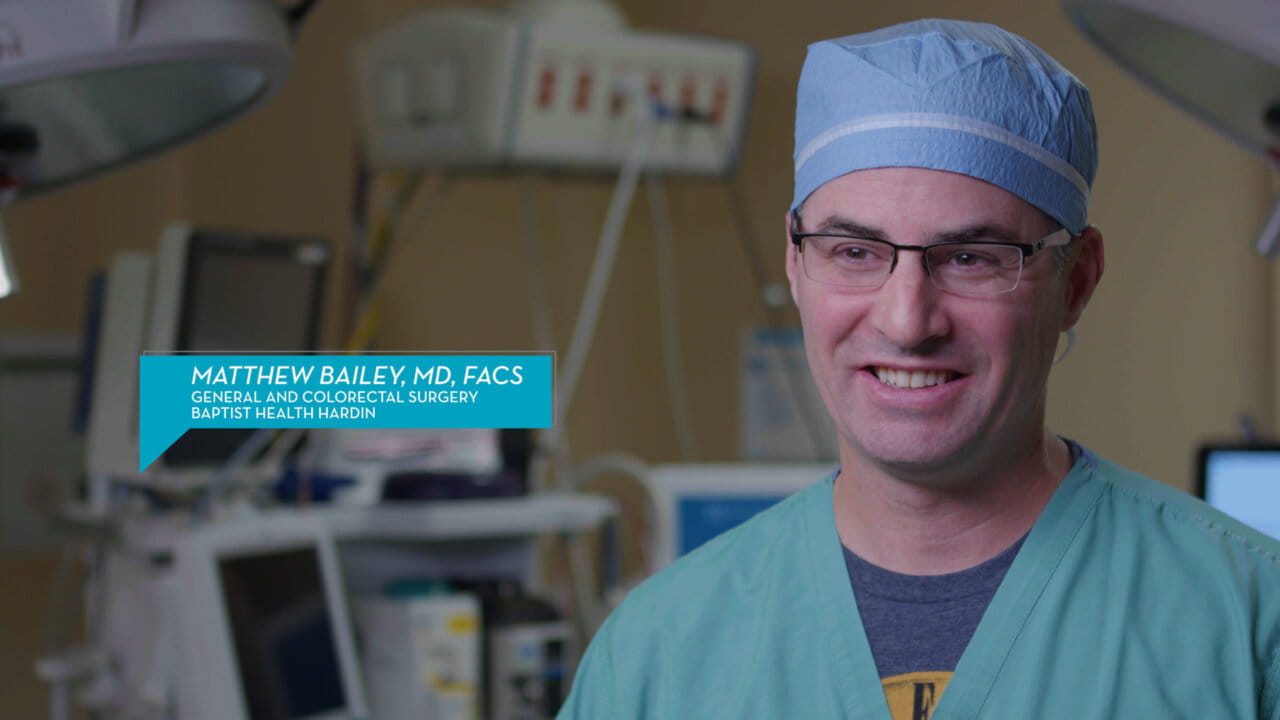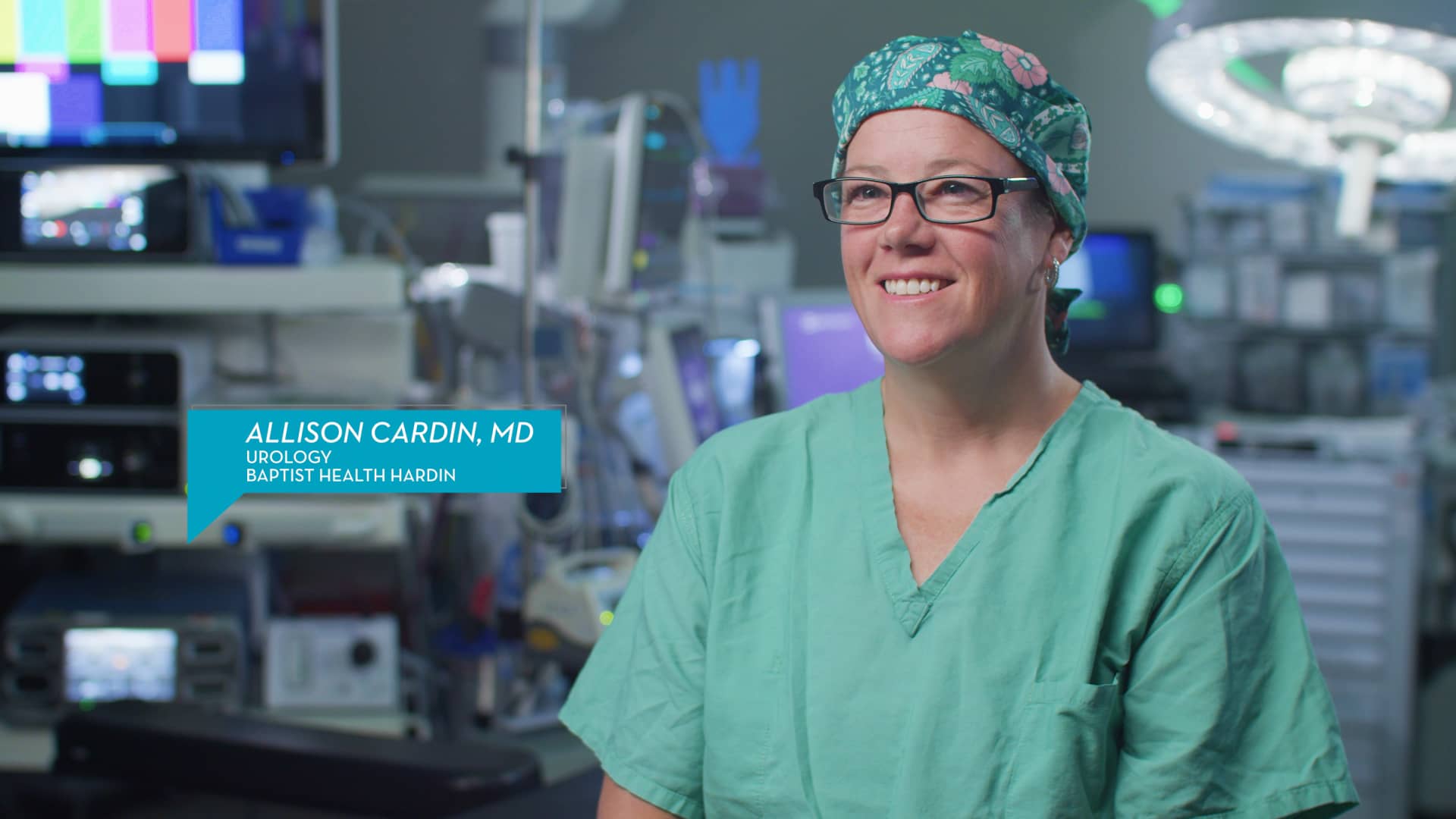Fecal Incontinence Treatment in Elizabethtown, KY
Solutions for Fecal Incontinence
Fecal incontinence can affect your quality of life. Regain control and improve your quality of life with our specialized care at Baptist Health Hardin.
Fecal Incontinence Treatment in Elizabethtown, KY, HealthTalks Transcript:
Matthew Bailey, MD, FACS:
Fecal incontinence is the uncontrolled passage of feces over a one-month duration,
and this can be full-bowel movements, it can be leakage, staining, seepage.
Basically, anything that comes out of your bottom that you didn't have planned to come out.
Fecal incontinence or bowel accidents has significant emotional, social distress. There's a lot of shame and sadness, depression. You know, there's a lot of social isolation, having to be tied to a bathroom. So, the treatment's a broad range of things.
Non-operative treatments, including reviewing your medications, then there's also medications to slow your bowels, there's dietary changes. If things are causing you to have diarrhea or loose stools, we'll try to increase the bulk of your stool with fiber.
Operative treatments include addressing the specific cause. If there's a prolapse, addressing that, or a sphincter defect. But in my practice, the gold standard is sacral neuromodulation or the anal pacemaker.
The anal pacemaker is a device that sends electrical stimulation to the nerves that control the bladder and the rectum. This helps restore normal communication between the brain and the rectum and helps restore normal bowel control.
The main thing to stress is it's not a normal part of aging. A lot of people think they just have to deal with it or it's part of life, and they adjust their life accordingly. They wear a pad or they stay at home. They isolate themselves. So, if you're having these accidents, you need to talk to your healthcare provider about it.



